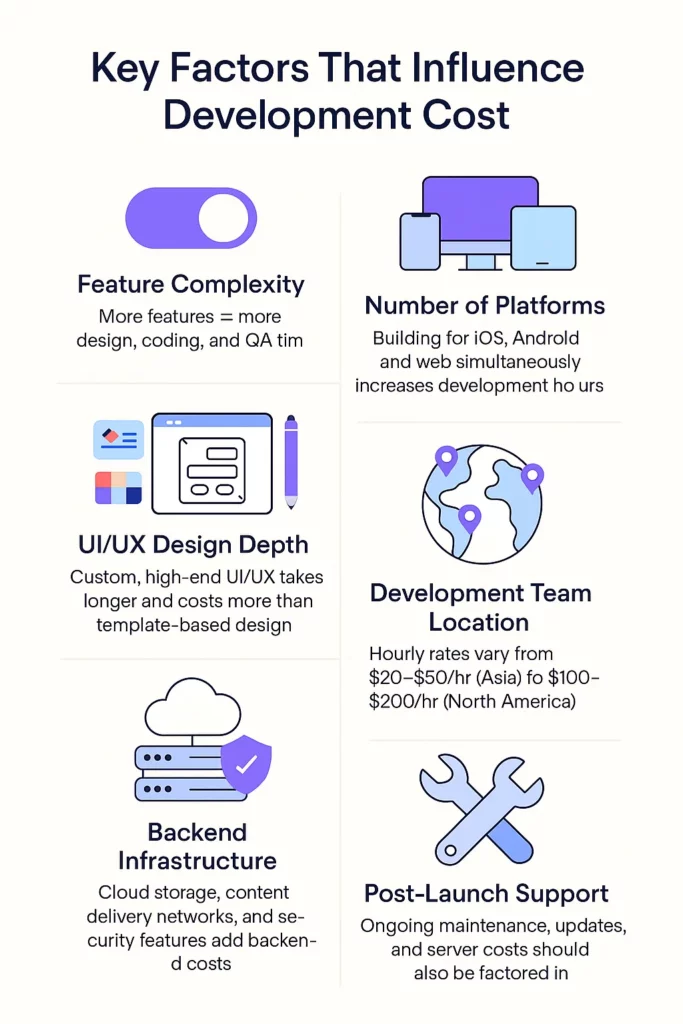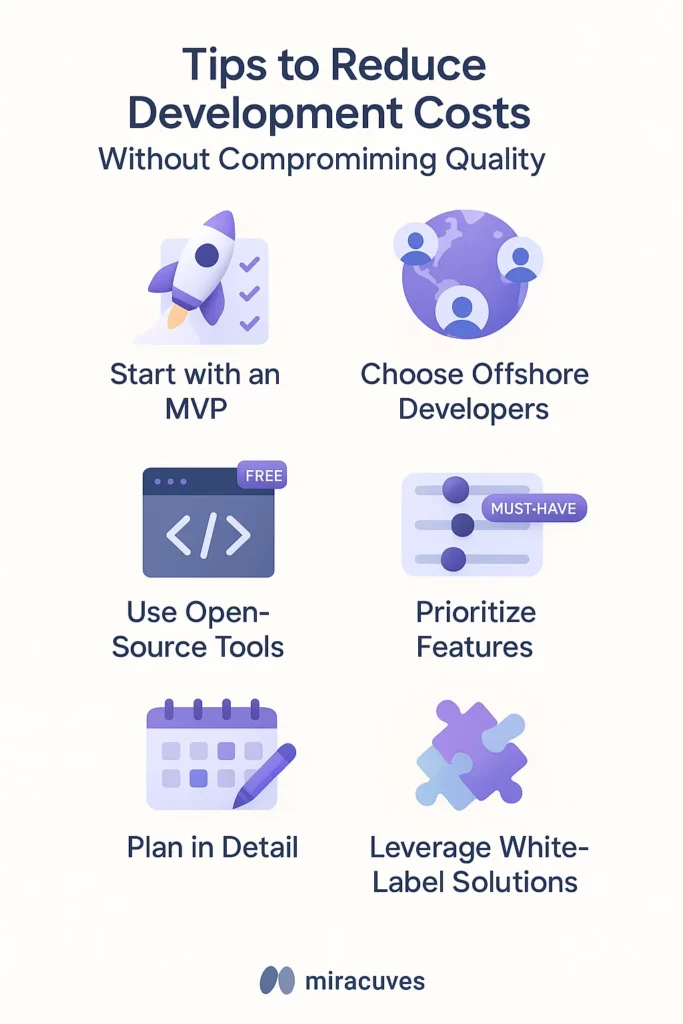Paxful Clone Development Cost Breakdown: MVP to Full App
Create a powerful, customizable streaming solution with Miracuves’ Paxful, equipped with high-performance features and next-gen technology.
Looking to launch your own crypto trading or P2P exchange platform like Paxful? Before you dive into crypto wallet integrations or payment methods, one thing matters most: understanding the real development cost.
A Paxful-style app isn’t just a buy/sell crypto platform — it’s a full-fledged peer-to-peer exchange ecosystem. From escrow-powered transactions and multi-currency support to real-time chat, KYC, and dispute resolution, the app requires thoughtful planning and robust backend infrastructure.
Whether you’re a crypto startup, fintech founder, or investor planning to enter the decentralized trading space, knowing the Paxful app development cost is key to building a realistic roadmap and avoiding budget surprises.
In this guide, we’ll break down the cost drivers, regional pricing trends, complexity-based estimates, and tips to optimize your investment without compromising on features or security.

Key Factors That Influence Development Cost
There’s no flat rate for building a crypto P2P exchange like Paxful. Your budget will shift based on features, scope, and infrastructure.
Here’s what has the biggest impact:
Feature Set & Escrow Logic → Paxful’s core value lies in its secure escrow-based crypto transactions, which require careful smart contract logic and audit-grade implementation.
Wallet Integration → Multi-crypto wallet support (e.g., Bitcoin, Ethereum, Tether) requires secure blockchain APIs and robust wallet modules.
Security Architecture → AML/KYC, 2FA, biometric login, DDoS protection, and cold wallet integration increase complexity and cost.
Platform Coverage → Building for iOS, Android, and Web from day one adds parallel development tracks.
Real-Time Chat & Dispute System → Enabling peer negotiation, chat history, and moderator access requires backend customization.
Customization vs. Clone Solution → Clone scripts reduce initial cost and time. Full custom platforms offer flexibility at a higher investment.
Development Team Location → U.S. and Western Europe are expensive. Asia and Eastern Europe offer quality at a lower cost.
Paxful Clone App Cost Estimates by Type
To help you estimate better, here’s a cost breakdown based on how advanced your crypto platform needs to be.
This includes UI/UX design, development, QA, and initial post-launch support — not including legal, compliance, or marketing costs.
|
App Type
|
Estimated Cost Range (USD)
|
Description
|
|---|---|---|
|
MVP (Minimum Viable Product)
|
$18,000 – $35,000
|
User signup, P2P trading, BTC wallet, escrow service, basic admin panel
|
|
Standard Version
|
$35,000 – $75,000
|
KYC, 2FA, affiliate/referral, fiat integrations, mobile apps, advanced admin
|
|
Full-Featured App
|
$75,000 – $160,000+
|
Multi-crypto support, dispute resolution, live chat, compliance tools, custom UI/UX, scalable backend
|
Note: These figures reflect development only. Plan separately for compliance, legal fees, exchange licenses, and liquidity provisioning.
Looking for a modular rollout? Miracuves can help you scale from MVP to full Paxful clone — securely and affordably.
Average Cost Estimates by Region
Here’s how much it typically costs to build a Paxful-style crypto app depending on your team’s location:
|
Region
|
Hourly Rate (USD)
|
Typical Cost for Standard App
|
Full App Cost
|
|---|---|---|---|
|
North America
|
$100 – $200/hr
|
$100,000 – $200,000+
|
$250K – $500K
|
|
Western Europe
|
$80 – $150/hr
|
$80,000 – $160,000+
|
$200K – $400K
|
|
Eastern Europe
|
$40 – $80/hr
|
$40,000 – $90,000+
|
$150K – $250K
|
|
India & Southeast Asia
|
$20 – $50/hr
|
$20,000 – $60,000+
|
$100K – $200K
|
Hiring a dedicated crypto development company in India or Eastern Europe gives you the best balance of speed, security, and cost-efficiency. Our Paxful developer hiring guide helps you choose smartly without compromising quality.
Cost Breakdown by Development Stage : Paxful Clone
Understanding where your money goes during development helps you budget smarter and avoid scope creep.
Here’s how a typical Paxful clone app’s budget is distributed across major stages:
|
Development Stage
|
Estimated % of Total Cost
|
Includes
|
|---|---|---|
|
Discovery & Planning
|
5–10%
|
Market research, competitor analysis, defining user personas, feature scoping, technical requirements.
|
|
UI/UX Design
|
10–15%
|
Wireframing, prototyping, responsive design, visual branding, user experience mapping.
|
|
Frontend & Backend Dev
|
40–50%
|
Core feature development, database architecture, APIs, payment integrations, dashboard and logic build.
|
|
Testing & QA
|
10–15%
|
Manual and automated testing, bug fixing, device/browser compatibility checks, performance tuning.
|
|
Deployment & Launch
|
5–10%
|
App store submission (Android/iOS), server setup, production deployment, performance monitoring tools.
|
|
Maintenance & Updates
|
10–20%
|
Post-launch bug fixes, new features, server maintenance, user support, compliance updates.
|

Tips to Reduce Development Costs Without Compromising Quality
Crypto platforms require serious investment, but you can stay efficient without cutting corners.
Here’s how:
Start lean with an MVP → Focus on secure escrow trading, wallet setup, and user onboarding. Scale features later.
Use a Paxful clone script → Speeds up development and lowers costs while allowing you to customize as you grow.
Partner with a crypto-experienced team → Choose a team that understands blockchain, wallet security, and regulatory compliance.
Use pre-integrated blockchain APIs → Avoid custom node management by using tools like Chainalysis, Fireblocks, or BitGo.
Build modularly → Add support for new coins, countries, or payment methods without rewriting your core app.
With the right plan, you can launch fast, stay compliant, and stay within budget — while remaining flexible for the future.
Choose the Right Development Partner
Building a Paxful-style app is a strategic decision — and choosing the right Paxful clone development company can make or break your roadmap. With the right team, you can replicate Paxful’s robust features while tailoring the platform to your business goals.
Here’s what to look for in a Paxful clone development company:
Proven experience in crypto and Web3 app development
Strong security practices across backend and blockchain integration
End-to-end services: strategy, compliance, escrow logic, deployment
Ability to support future scaling and token integrations
At Miracuves, we don’t just build clones — we deliver scalable, secure platforms aligned with your long-term business model. Whether you’re launching a crypto startup or enhancing an existing product, we help you go live faster with confidence.
Let Miracuves handle the tech — so you can focus on user growth, liquidity, and market positioning.
Conclusion
The Paxful app development cost in 2025 depends on your platform’s scope, feature depth, region of development, and build method. From MVPs around $35,000 to enterprise-grade solutions exceeding $250,000, the range is broad — but manageable with the right plan.
Ready to build your crypto trading platform?
Talk to Miracuves today for a tailored cost estimate and a phased development roadmap.
Want to explore business models or the marketing startegy to include in your crypto app? Check out our related guides for more insights.
Frequently Asked Questions
A basic version may cost $35,000 – $70,000, while full-featured platforms can go up to $250,000+ depending on features and region.
An MVP should include user registration, crypto wallets, escrow functionality, simple KYC, and a basic trade engine.
Yes. A high-quality Paxful clone can save time and money, especially for startups. It allows customization while shortening the launch cycle.
Timelines vary, but an MVP usually takes 3–4 months, while full builds can take 6–9 months or longer depending on complexity.
Miracuves offers secure, scalable P2P crypto exchange solutions with proven experience in wallet integration, escrow systems, and blockchain infrastructure.



